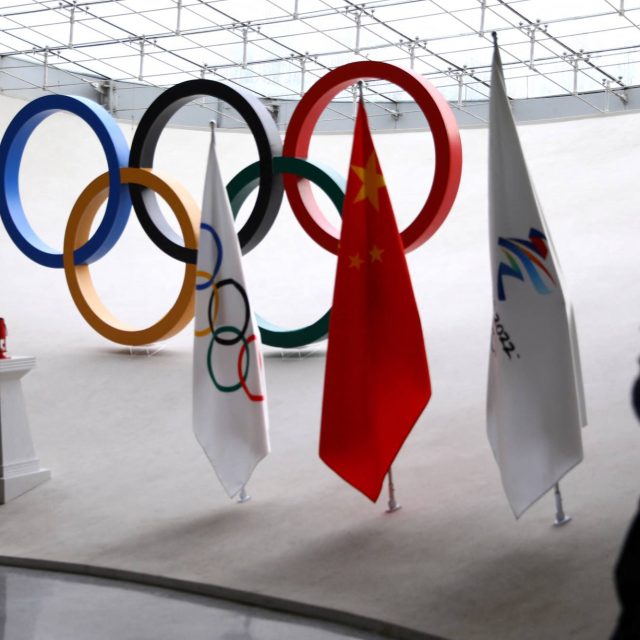Photo by Jacek Dylag on Unsplash
Margaret Thatcher was a great believer in privatisation. She said it was crucial for ‘reversing the corrosive and corrupting effects of socialism…. ensuring the power of the people is enhanced….and reclaiming the territory for freedom’, writes Philip Bushill-Matthews.
She was equally clear that Governments were inherently inefficient at running businesses, and few might argue. Today one might add, given present day experience, that the UK Government cannot even run itself – but that is another story altogether.
The privatisation programme grew progressively wider, including British Airways, British Telecom, British Steel and then water supply in 1989. If water privatisation was also supposed to be reclaiming territory for freedom, the question now is freedom for whom?
The Water Industries Act of 1991 laid out the remit of the regulator, OFWAT. Their website summarises their mandate under Section 2 (as amended): We must carry out our work as an economic regulator in the way we consider best will further the consumer objective to protect the interests of consumers, wherever appropriate by promoting effective competition and secure that water companies (meaning water and sewerage undertakers) properly carry out their statutory functions.
The three most remarkable words in this mission statement are ‘we consider best’. They are the judge, but currently nobody seems to be judging them.
The BBC has revealed that last year water companies continued to dump untreated sewage into British waterways: in 2020 this happened on over 400,000 occasions. The Times recently reported that the largest company, Thames Water, has confessed to around 25% of the water it supplies being lost through leaks: that adds up to 650 million litres every day. Several water companies have also failed to spend money on improving or even maintaining their infrastructure: Ofwat’s response has simply been to say that this is ‘extremely disappointing’. The water companies must be quaking with fear at such a robust response…
Recently the water companies announced a 7.5% increase in customer bills for water and sewerage with effect from April 1st – April Fool’s Day, except that this is not a joke. UK Water, which represents the water companies, proudly stated that firms would be investing a further £70 billion to ‘eliminate harm’ from storm overflows. But will this investment really come from the companies? A lengthy report by the University of Greenwich, updated last year, revealed otherwise.
Almost every year investments in infrastructure have been entirely paid for out of customer bills: some 20% of the average water bill goes to the companies just to help pay down their debt. Since 1989, six out of the nine water companies in England have pulled themselves out of the stock market and no longer have to release information to their shareholders. All nine have made nearly £20 billion of pre-tax profits. The University reckons that the English are paying £2.3 billion more in water and sewerage bills than if they were still in state ownership. Meanwhile, shareholders have been paid an annual average of £1.6 billion every year for the past twelve years. The Chief Executives have also been rewarded handsomely, often with £100,000 bonuses on top of their generous salaries.
The University concludes that ‘no other country in the world has adopted the English system of private companies running regional water and sanitation systems’. Not even Scotland, whose Scottish Water is publicly owned. It has invested nearly 35% more each year since 2002 yet charging customers about 14% less than English companies while simultaneously reducing its debt. It can be done.
Most of the world, including the USA, runs such services via the public sector. France has taken this further: 94 cities have brought water supply under local municipal control since 2010, with improvements in service and lower bills being the immediate and continuing result. We should learn from the EU, but that of course is taboo.
The University cites John Stuart Mill who said 200 years ago that natural monopolies such as water should be publicly owned because private companies would exploit captive consumers by making excessive profits. Exactly. Marine biologist Jean-Michel Cousteau described clean water as ‘the essence of life and a birthright for everyone’. In the Bible, Esau is described as selling his birthright to his younger brother for a mess of porage. In the UK our birthright of clean water has been exchanged for a mess of sewage.
Recently Thames Water hired as Director of Strategy the former CEO of Ofwat. Earlier an executive of Anglian Water became Ofwat Chair. This incestuous relationship produces a ‘captive regulator’ supporting the interests of the companies it is supposed to regulate, effectively giving them freedom to behave as they wish and charge what they choose.
Ofwat is a non-ministerial Government department, so nobody regulates the regulators. It is time for the Government to show leadership, confront the issue and take back control.

The Author, Philip Bushill-Matthews, is Former Leader of the British Conservatives in the European Parliament.





Perhaps the question most in need of asking as I write is where all this stands as regards the intention of the government (or its ERG wing) to further de-regulate the economy by scrapping EU regulations. We have seen the energy industry – another privatised sector albeit one with a measure of competition – ramp up its profits as a consequence of the Ukraine War but make spurious justifications for those profits by claiming they encourage reinvestment in new technologies, while simultaneously paying out larger and larger dividends to shareholders enabling huge bonuses for executives. The same holds for the water industry, a natural monopoly that should serve us all. This is rentier economics. Time for a paradigm shift.